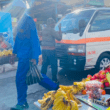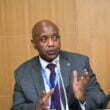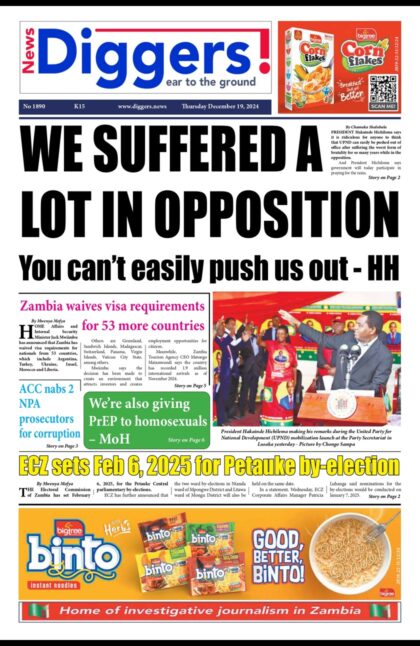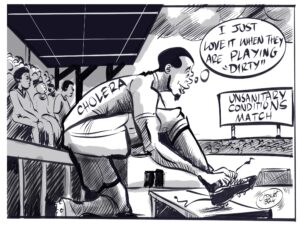The recent fuel price and electricity tariff increment will intensify poverty in Zambia because ordinary citizens will be overwhelmed with higher costs, says Consumer Unity Trust Society (CUTS) centre coordinator Chenai Mukumba.
On Monday, the Road Transport and Safety Agency (RTSA) and Bus and Taxi Owners Association of Zambia (BTOAZ) resolved to increase bus fares, triggered by the increase in the fuel pump prices effected by the Energy Regulation Board (ERB) on December 26.
The Energy Regulation Board last month increased pump prices of petrol to K17.62 from K15.98 while diesel is now at K15.59 from K14. 23 per lite.
Following this increase, the Bus and Taxi Owners Association, in consultation with the Road Transport and Safety Agency and the Ministry of Transport and Communication, has increased bus fares by K2 for all local routes while the increment on long distance routes is between K20 and K60.
But in a statement, Tuesday, Mukumba that the hiked bus fares, coupled with high inflation, will see more people falling into poverty as the escalating transport costs would worsen the current economic crisis.
“Consumers are already feeling the brunt of the country’s economic situation and this price hike will, indeed, only worsen the current situation. With inflation at 11.7 per cent, the price of goods and services are increasing at a rate that is increasingly becoming untenable for consumers. This, combined with the increase in the price of electricity tariffs, will likely only increase the country’s inflation rate and result into more people falling into poverty,” Mukumba cautioned.
She said the government needed to indicate how it would cushion the effects of increased costs on the poor, emanating from the energy price hikes.
“One of the key ways this can be done is by allocate more resources towards well-targeted social safety nets that have high coverage of poor households and little leakage to non-profit households. While, indeed, the country is going through a difficult economic time, resources towards social protection must be ring-fenced in order to protect those most vulnerable. The country’s large growing debt burden is resulting in the government needing to redirect resources from critical sectors of the economy towards debt interest payments, yet we still are yet to receive a concrete plan of action on how the government will seek to address this issue,” stated Mukumba.
“Following an increase in the cost of transportation, the report indicated that the majority of all respondents at all income levels shifted their expenditure from basic needs towards transport. A few resorted to cheaper modes of transport as coping strategies, however, in large part, 60 per cent of respondents said that they had to cut expenditure on basic needs, such as health, education and food as a way of coping with the increased cost of transportation. We anticipate that this is how most consumers will respond to this most recent hike.”








